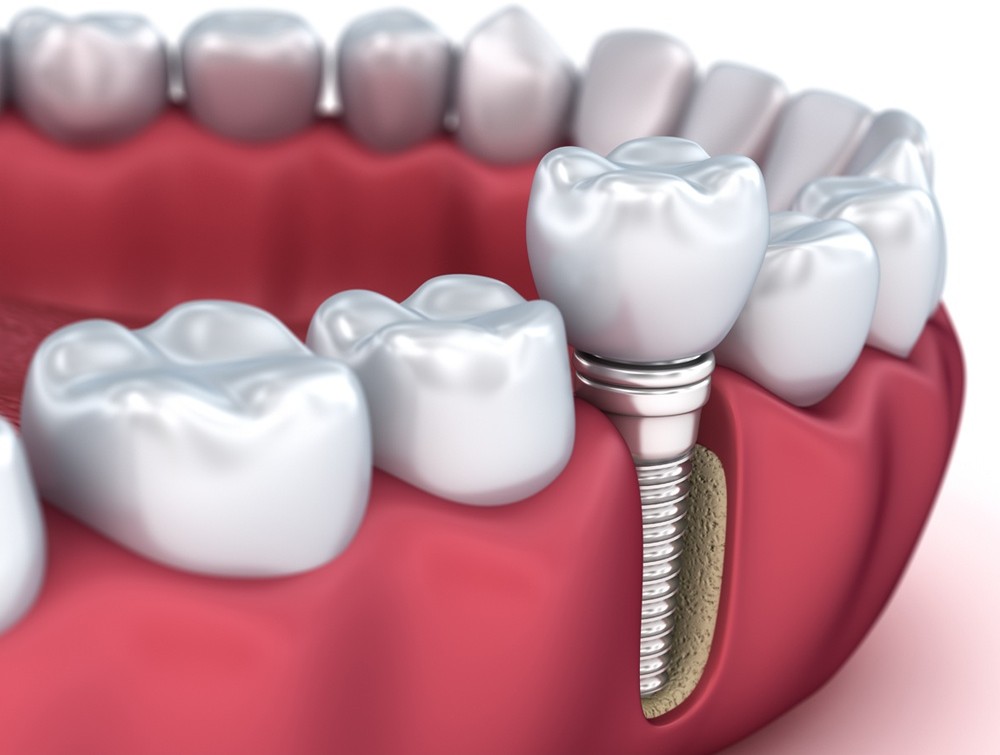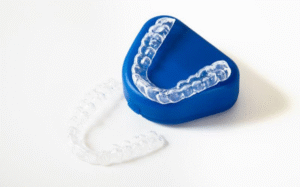The Benefits of Dental Implants Over Traditional Bridges

When it comes to replacing missing teeth, patients are often faced with two main options: dental implants or traditional bridges. Both options offer ways to restore functionality and aesthetics to your smile, but dental implants provide several distinct advantages over traditional bridges.
In this article, we will explore the key benefits of dental implants and why they are often considered the superior choice for tooth replacement.
Preservation of Jawbone and Facial Structure
One of the most significant benefits of dental implants is their ability to preserve the jawbone. When a tooth is lost, the bone in that area begins to deteriorate over time due to lack of stimulation. Implants act as artificial tooth roots, stimulating the bone just like natural teeth and preventing bone loss.
Traditional bridges, by contrast, do not address the underlying bone structure. Since they rest on top of the gums, they do not stimulate the jawbone, which can lead to bone loss over time. As a result, the facial structure may change, and patients may experience a sunken appearance in the areas where teeth are missing.
Durability and Longevity
Dental implants are designed to last a lifetime with proper care, making them a long-term solution for tooth replacement. The titanium post integrates with the jawbone, creating a stable foundation for the implant. With regular oral hygiene and dental check-ups, implants can maintain their strength and functionality for decades.
In comparison, traditional bridges typically have a lifespan of 10 to 15 years, and they may require replacement or repair due to wear and tear. The adjacent teeth that support the bridge can also become damaged over time, further reducing the longevity of the restoration.
Preservation of Healthy Teeth
Traditional bridges rely on the adjacent teeth for support, which means those teeth need to be filed down and covered with crowns. This process can compromise the health of otherwise healthy teeth and increase the risk of decay or damage to the supporting teeth in the long run.
Dental implants, on the other hand, do not affect neighboring teeth. Since the implant is anchored directly into the jawbone, no alteration to surrounding teeth is necessary. This allows patients to preserve more of their natural tooth structure, which is beneficial for long-term oral health.
Improved Aesthetics and Comfort
Dental implants are known for their natural look and feel. The implant is securely anchored in the jawbone, and the custom-made crown is designed to blend seamlessly with the surrounding teeth in terms of shape, size, and color. This makes implants nearly indistinguishable from natural teeth.
In contrast, traditional bridges can sometimes be more noticeable, especially if they do not fit perfectly or if the supporting teeth are not an ideal match in color. Additionally, bridges may not feel as comfortable as implants because they rest on the gums and can shift or loosen over time.
Better Oral Function
Dental implants restore full chewing function, allowing patients to eat their favorite foods without restrictions. Since implants are anchored in the jawbone, they provide the same strength and stability as natural teeth, enabling you to bite and chew with confidence.
Traditional bridges may not offer the same level of stability, especially if the supporting teeth are weak or the bridge becomes loose over time. This can limit your ability to chew certain foods or cause discomfort when eating.
Easier Maintenance
Maintaining dental implants is as simple as caring for natural teeth. Regular brushing, flossing, and dental check-ups are all that’s required to keep implants in good condition. There’s no need for special cleaning tools or solutions, making implants a low-maintenance option for patients.
Traditional bridges, on the other hand, require extra care when it comes to cleaning. The area underneath the bridge needs to be cleaned carefully to prevent plaque buildup and gum disease. Floss threaders or special brushes are often necessary to clean under the bridge effectively.
Cost Considerations
While the initial cost of dental implants may be higher than traditional bridges, implants are a long-term investment in your oral health. Because they last significantly longer and do not require frequent replacement or maintenance, implants can be more cost-effective in the long run.
Traditional bridges may have a lower upfront cost, but their shorter lifespan and potential need for replacement can add up over time. Additionally, if the adjacent teeth supporting the bridge become damaged, further dental work may be required, leading to additional expenses.
Conclusion
Dental implants offer numerous advantages over traditional bridges, making them the preferred choice for many patients seeking to replace missing teeth. From preserving the jawbone and healthy teeth to providing superior aesthetics, comfort, and durability, implants provide a long-lasting solution that enhances both oral health and quality of life.







